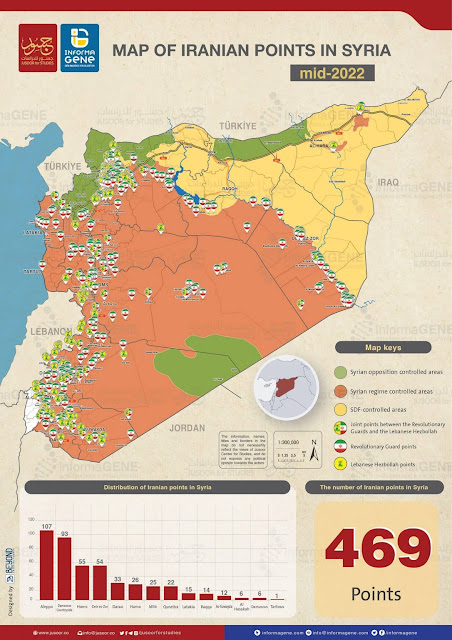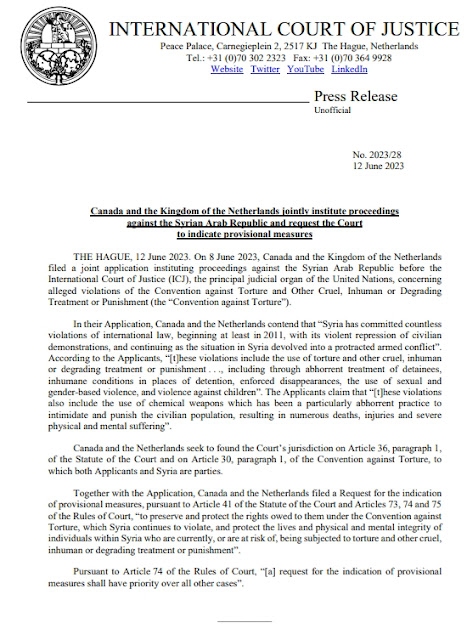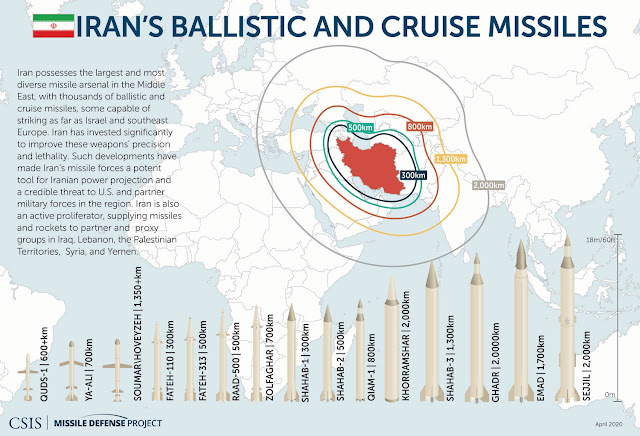G8 Urges Speedier Reforms in Broader Middle East, North Africa
Morocco, Jordan, Bahrain singled out for leadership roles
The Group of Eight (G8) nations issued a statement welcoming steps to accelerate political, economic, social reforms in the Broader Middle East and North Africa (BMENA) at the annual G8 Summit, which took place at Gleneagles, Scotland, July 6-8.
The G8 comprises Canada, France, Germany, Italy, Japan, the United Kingdom, the United States and Russia.
The group called for a just and lasting settlement of the Arab-Israeli conflict and praised recent elections in Afghanistan, Iraq, Lebanon and the Palestinian territories, according to the statement.
The G8 singled out Morocco, Bahrain and Jordan for their leading roles in hosting international conferences where BMENA reforms are discussed and coordinated.
The group also noted the importance of the BMENA region investing in its own future, which would require structural reforms to develop diversified economies driven by the private sector.
The G8 said that civil societies and private business people have crucial roles to play in the success of the BMENA reforms.
For additional information on the summit, see G8 Summit 2005, Gleneagles, Scotland.
For more information on the reforms in the Broader Middle East and North Africa, see BMENA.
Following is the text of the G8 statement on BMENA reforms:
(begin text)
G8
GLENEAGLES
2005
PARTNERSHIP FOR PROGRESS AND A COMMON FUTURE WITH THE BROADER MIDDLE EAST AND NORTH AFRICA REGION
1. One year ago, we the leaders of the G8 committed ourselves to a Partnership for Progress and a Common Future with the Region of the Broader Middle East and North Africa, based on genuine co-operation between the G8 and the governments, business and civil society of the region, in order to strengthen freedom, democracy and prosperity for all.
2. Today we recognise the new determination by governments and people in the region to ensure that they take their rightful place in a modern and democratic world. We welcome and support the steps taken to accelerate political, economic, social and educational reform. We welcome too the commitments on modernisation made by regional leaders at the Arab League Summits in Tunisia and Algeria. Given also the region's importance to our own interests it is vital that we encourage the emerging momentum for change, building on our existing instruments and our traditional links with the region. We underline that our support for reform will go hand in hand with our commitment to progress on a just, comprehensive and lasting settlement to the Arab-Israeli conflict, based upon UN Resolutions 242 and 338, and to the restoration of peace and stability in Iraq.
3. Governments and people of the region have expressed their wish to see democracy and freedoms expanded. National elections in Afghanistan, Iraq, Lebanon and in the Palestinian Authority demonstrate the value placed on the principles and institutions of democracy and that democracy is fully compatible with national and cultural identities. We will continue to support further regional efforts to expand political pluralism and participation to include all democratic, non-violent groups and encourage all in positions of authority to respond to the new momentum in the region by building inclusive, modern and prosperous societies.
4. While notable progress has been made in a number of countries, significant challenges remain. Improving governance, strengthening the rule of law, combating corruption, promoting equality for women and liberalising the media are viewed by many in the region as critical to national development. We encourage further progress in these areas in their own right, but also to stimulate economic growth and opportunity, including the private investment needed to help create the millions of jobs required by the region's youth.
5. We recognise that each country is unique and diverse and that our role is to support regionally-led and locally-owned reform. The inaugural Forum for the Future in Rabat in December 2004 established a process of dialogue among G8 and regional governments in pursuit of this agenda. We look forward to the second Forum for the Future in Bahrain in November 2005 to further advance the work of this partnership.
We appreciate the leading roles played by Morocco, Bahrain and Jordan as Forum hosts together with the regional sponsors of the various initiatives under the Plan of Support and welcome others in the international community that want to be part of our partnership.
6. We encourage the work of G8 and regional Education and Finance Ministers to deepen cooperation within the Plan of Support agreed at Sea Island. The landmark meetings earlier this year in Algeria and Jordan to develop frameworks for action on literacy and on modernising education systems for the needs of the 21st Century are evidence of new horizons being explored together. The establishment of the Network of Funds, the creation of a Private Enterprise Partnership for the Middle East and North Africa, the launch of an Investment Task Force, the establishment of a regional microfinance best practices centre and the continuing development of regional entrepreneurship centres all give practical meaning to our partnership.
7. Yet it is vital for the region to invest in its own future and to assist each other. We concur with the IMF and World Bank on the importance of continued regional investment in structural reform and the further transition to diversified, private-sector driven economies. Combined with measures to manage the social costs of transition, the goal is to enable the people of the region to fully benefit from globalisation. We stand ready to assist efforts to remove impediments to growth in the region, including through regional trade and investment liberalisation, strengthening of financial systems, regulatory reform, sound macroeconomic policies and regional economic integration. Along with regional policies to enhance the quality of education and facilitate access to vocational training, these measures will help unleash the potential of businesses to improve the region's global competitiveness.
8. The ability within law of civil society and business to interact with governments to help strengthen the democratic environment, entrench fundamental freedoms and improve systems of accountability and transparency is intrinsic to the region's future. The Civil Society and Business Dialogues seek to enhance the role of civil society and business in regional and national development. The Democracy Assistance Dialogue aims to support democracy programmes by bringing together interested groups from the G8, EU and the region. We encourage the Dialogues to also promote the role of women through political, educational and economic reform. At the Forum for the Future in Bahrain in November we will want to work together on the recommendations that emerge from these Dialogues and encourage further progress in these and other areas through 2006 and beyond.
(end text)
Source: International Information Programs, U.S. Department of State
Morocco, Jordan, Bahrain singled out for leadership roles
The Group of Eight (G8) nations issued a statement welcoming steps to accelerate political, economic, social reforms in the Broader Middle East and North Africa (BMENA) at the annual G8 Summit, which took place at Gleneagles, Scotland, July 6-8.
The G8 comprises Canada, France, Germany, Italy, Japan, the United Kingdom, the United States and Russia.
The group called for a just and lasting settlement of the Arab-Israeli conflict and praised recent elections in Afghanistan, Iraq, Lebanon and the Palestinian territories, according to the statement.
The G8 singled out Morocco, Bahrain and Jordan for their leading roles in hosting international conferences where BMENA reforms are discussed and coordinated.
The group also noted the importance of the BMENA region investing in its own future, which would require structural reforms to develop diversified economies driven by the private sector.
The G8 said that civil societies and private business people have crucial roles to play in the success of the BMENA reforms.
For additional information on the summit, see G8 Summit 2005, Gleneagles, Scotland.
For more information on the reforms in the Broader Middle East and North Africa, see BMENA.
Following is the text of the G8 statement on BMENA reforms:
(begin text)
G8
GLENEAGLES
2005
PARTNERSHIP FOR PROGRESS AND A COMMON FUTURE WITH THE BROADER MIDDLE EAST AND NORTH AFRICA REGION
1. One year ago, we the leaders of the G8 committed ourselves to a Partnership for Progress and a Common Future with the Region of the Broader Middle East and North Africa, based on genuine co-operation between the G8 and the governments, business and civil society of the region, in order to strengthen freedom, democracy and prosperity for all.
2. Today we recognise the new determination by governments and people in the region to ensure that they take their rightful place in a modern and democratic world. We welcome and support the steps taken to accelerate political, economic, social and educational reform. We welcome too the commitments on modernisation made by regional leaders at the Arab League Summits in Tunisia and Algeria. Given also the region's importance to our own interests it is vital that we encourage the emerging momentum for change, building on our existing instruments and our traditional links with the region. We underline that our support for reform will go hand in hand with our commitment to progress on a just, comprehensive and lasting settlement to the Arab-Israeli conflict, based upon UN Resolutions 242 and 338, and to the restoration of peace and stability in Iraq.
3. Governments and people of the region have expressed their wish to see democracy and freedoms expanded. National elections in Afghanistan, Iraq, Lebanon and in the Palestinian Authority demonstrate the value placed on the principles and institutions of democracy and that democracy is fully compatible with national and cultural identities. We will continue to support further regional efforts to expand political pluralism and participation to include all democratic, non-violent groups and encourage all in positions of authority to respond to the new momentum in the region by building inclusive, modern and prosperous societies.
4. While notable progress has been made in a number of countries, significant challenges remain. Improving governance, strengthening the rule of law, combating corruption, promoting equality for women and liberalising the media are viewed by many in the region as critical to national development. We encourage further progress in these areas in their own right, but also to stimulate economic growth and opportunity, including the private investment needed to help create the millions of jobs required by the region's youth.
5. We recognise that each country is unique and diverse and that our role is to support regionally-led and locally-owned reform. The inaugural Forum for the Future in Rabat in December 2004 established a process of dialogue among G8 and regional governments in pursuit of this agenda. We look forward to the second Forum for the Future in Bahrain in November 2005 to further advance the work of this partnership.
We appreciate the leading roles played by Morocco, Bahrain and Jordan as Forum hosts together with the regional sponsors of the various initiatives under the Plan of Support and welcome others in the international community that want to be part of our partnership.
6. We encourage the work of G8 and regional Education and Finance Ministers to deepen cooperation within the Plan of Support agreed at Sea Island. The landmark meetings earlier this year in Algeria and Jordan to develop frameworks for action on literacy and on modernising education systems for the needs of the 21st Century are evidence of new horizons being explored together. The establishment of the Network of Funds, the creation of a Private Enterprise Partnership for the Middle East and North Africa, the launch of an Investment Task Force, the establishment of a regional microfinance best practices centre and the continuing development of regional entrepreneurship centres all give practical meaning to our partnership.
7. Yet it is vital for the region to invest in its own future and to assist each other. We concur with the IMF and World Bank on the importance of continued regional investment in structural reform and the further transition to diversified, private-sector driven economies. Combined with measures to manage the social costs of transition, the goal is to enable the people of the region to fully benefit from globalisation. We stand ready to assist efforts to remove impediments to growth in the region, including through regional trade and investment liberalisation, strengthening of financial systems, regulatory reform, sound macroeconomic policies and regional economic integration. Along with regional policies to enhance the quality of education and facilitate access to vocational training, these measures will help unleash the potential of businesses to improve the region's global competitiveness.
8. The ability within law of civil society and business to interact with governments to help strengthen the democratic environment, entrench fundamental freedoms and improve systems of accountability and transparency is intrinsic to the region's future. The Civil Society and Business Dialogues seek to enhance the role of civil society and business in regional and national development. The Democracy Assistance Dialogue aims to support democracy programmes by bringing together interested groups from the G8, EU and the region. We encourage the Dialogues to also promote the role of women through political, educational and economic reform. At the Forum for the Future in Bahrain in November we will want to work together on the recommendations that emerge from these Dialogues and encourage further progress in these and other areas through 2006 and beyond.
(end text)
Source: International Information Programs, U.S. Department of State


